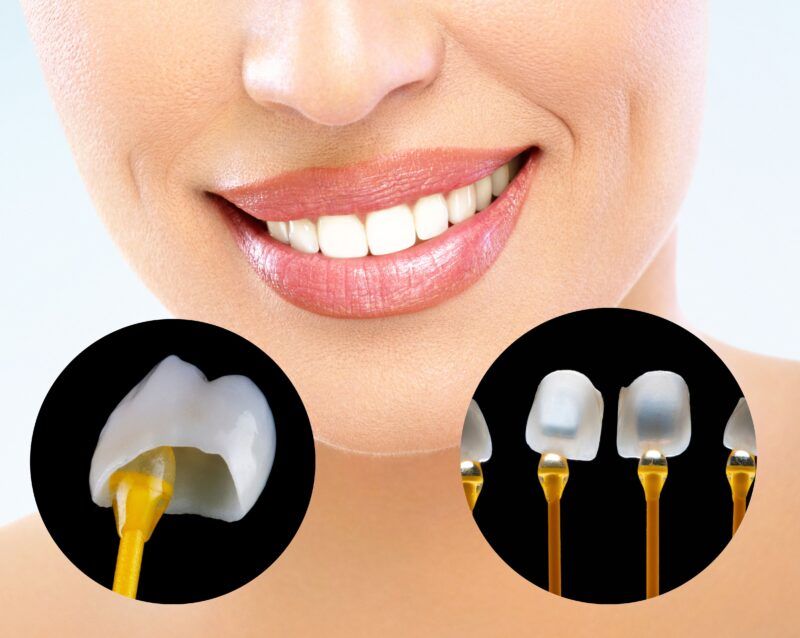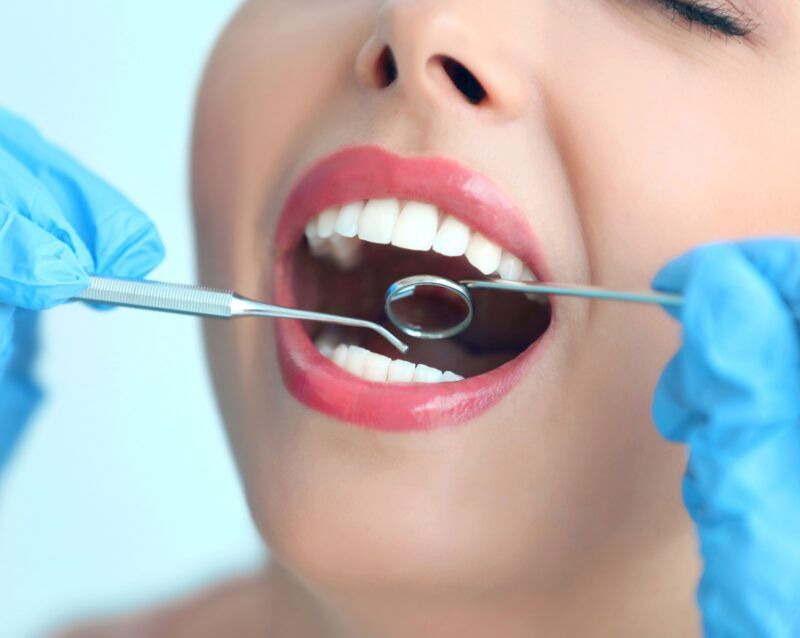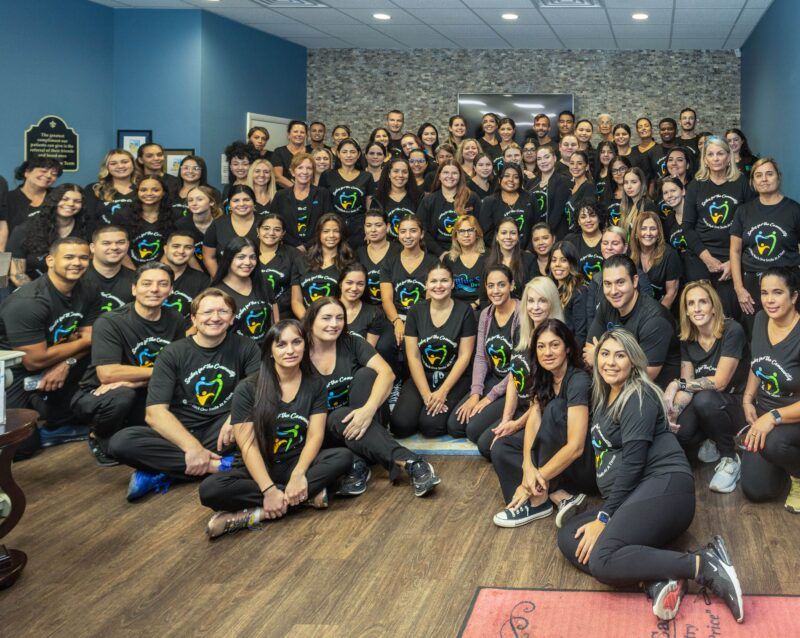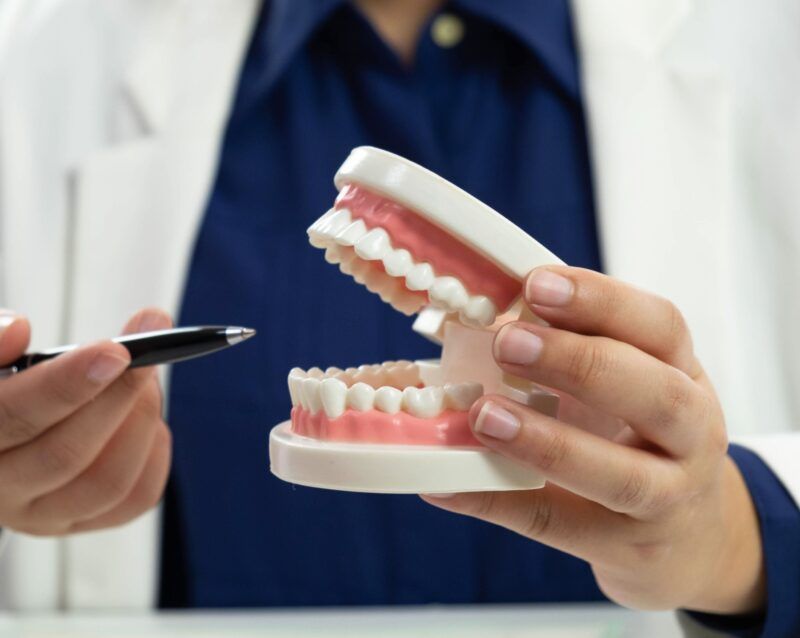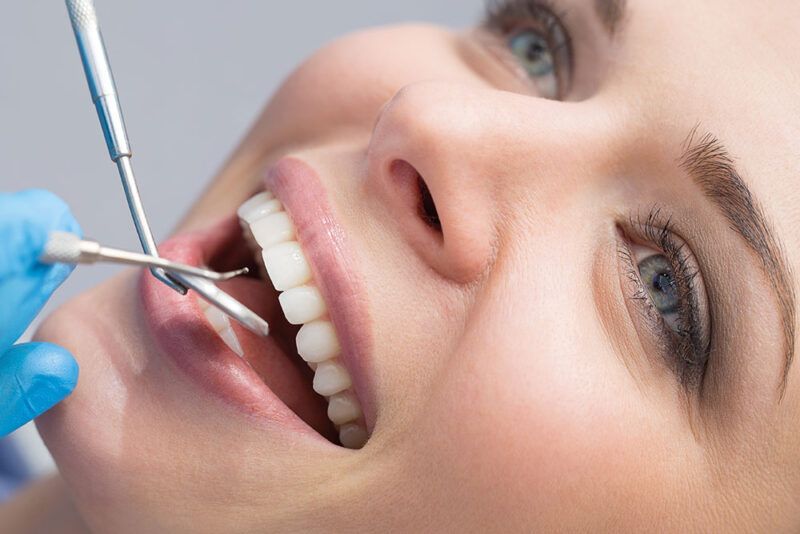Patients often have questions about why they need a deep cleaning, what’s involved, and why the cleaning itself wasn’t as uncomfortable or time-consuming as they expected. In this blog we try to take some of the mystery out of deep cleanings.
Deep Cleanings: Everything You Need to Know
The deep cleaning is one of the most misunderstood services Dental Hygienists provide. Here at our Jupiter, FL dentist office, we have encountered patients who are doubtful about the benefits a deep cleaning can provide, skeptical about the amount of time it takes, or both. In this blog, we hope to take some of the mystery out of the deep cleaning.
My teeth look fine, why do I need a deep cleaning?
Some deep cleanings are clearly warranted by visible buildup of plaque and calculus (tartar) on the teeth. In other cases, patients get plaque and calculus buildup below the gum line where it is not easily detected by looking at one’s teeth in the mirror. Left to flourish, this buildup can cause serious problems and even lead to tooth loss. The bacteria in this buildup will eventually cause inflammation and can essentially eat away at the gums and the bone that support the teeth. Not only do these bacteria affect the teeth, gums, and bone they also can also enter the bloodstream and impact the heart, lungs, and brain.
For most of our Jupiter, FL dental patients, regular routine cleanings are sufficient to maintain healthy teeth and gums. However, in cases where a patient is returning to our Jupiter, FL office after a long period with no routine cleanings, if they have gum disease, preexisting conditions like diabetes, or if they have buildup below the gum line, a deep cleaning may be needed.
What is involved in a deep cleaning?
For gingivitis, if there is inflammation of the gums but no periodontal disease present will do a more thorough cleaning than a “normal” six-month prophylaxis cleaning. This is called a gingivitis scaling. In non-dental terms, gingivitis is gum disease in its early stage whereas periodontal disease is mid- and late- stage gum disease.
For heavy buildup that is visible on the teeth, the deep cleaning approach typically used is called full mouth debridement. This type of deep cleaning will focus on the teeth above the gum line. Your Jupiter, FL Dental hygienist will use special tools to remove the buildup to protect the teeth from decay.
When there is buildup below the gum line, and periodontal disease is present, the deep cleaning approach used is called scaling and root planing. In this type of cleaning, your Jupiter, FL Dental Hygienist will meticulously remove plaque and tartar from the surfaces of the teeth and their roots below the gum line. In addition, the roots may be smoothed to prevent further buildup.
These types of cleanings will help to preserve the teeth by preventing or arresting the progression of gum disease, which is the leading cause of tooth loss.
Why do some deep cleanings take longer than others?
- Techniques Used. Hygienists have a choice of approaches to the work of deep cleaning and depending on which techniques they use; the cleaning may take what seems like a very short time but reflects using the most advanced approach.
- Extent of Gum Disease: If gum disease is in its early stages, the deep cleaning process may be relatively quick. For more advanced gum disease, more extensive cleaning and treatment is required so it will take longer.
- Number of Quadrants Needing Treatment: Dental cleanings are often divided into quadrants (upper right, upper left, lower right, lower left) with some patients only needing more extensive attention in one or two quadrants. The time needed for a deep cleaning will vary depending on the number of quadrants involved.
But really, why do I need a deep cleaning?
Deep cleaning is a powerful first-line tool to prevent or arrest the progression of gum disease. Left untreated, serious gum disease can require surgery. For this reason, it is prudent to go ahead and have that deep cleaning or root planing and scaling at Jupiter Advanced Dentistry when it is recommended.
Plaque and tartar below the gum line causes inflammation and detachment of the gum from the tooth. This leaves more tooth and possibly the root exposed and vulnerable to decay. Deep cleaning to remove that plaque and tartar reduces inflammation so gums can re-attach to the teeth, protecting more of the tooth from damage or decay.
Finally, bacteria in the mouth can cause bad breath. An added benefit to deep cleanings is fresher breath.
And if all that isn’t enough, research has linked gum disease to many health conditions, including diabetes, heart and kidney disease, Alzheimer’s, asthma, osteoporosis, and cancer. If your goal is to have the best possible overall health, tending to your gum health needs to be part of your game plan. Your Jupiter Advanced Dentistry team is here to ensure that you have the best possible oral health.
If you haven’t had a cleaning in the past 6 months, call us to schedule a routine cleaning or a deep cleaning. If you’re not sure which one you need, don’t worry, our skilled Hygienist will evaluate the condition of your gums and guide you.




